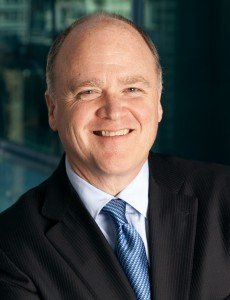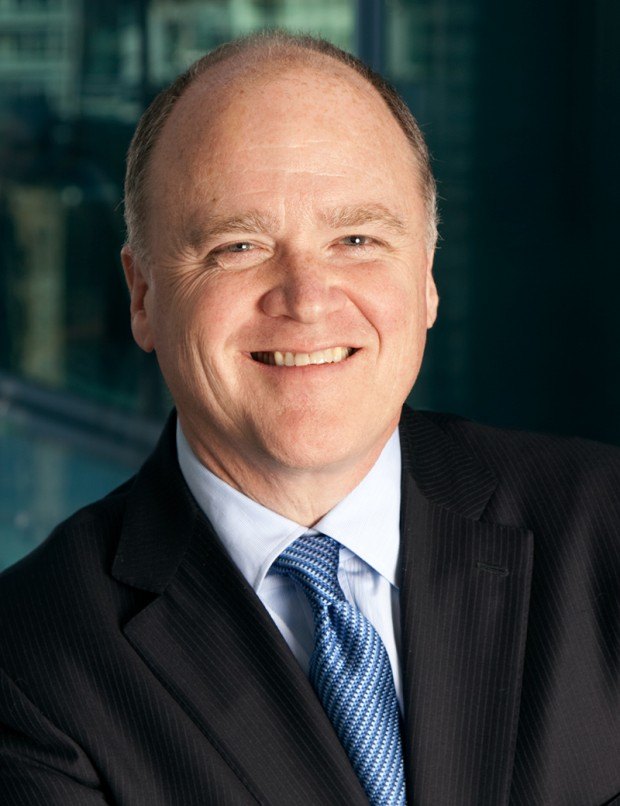XL Group concluded its 2014 first quarter with some encouraging results. But it seemed like all CEO Mike McGavick wanted to talk about at first, during the company’s May 2 earnings call, was the decision to sell off its life reinsurance subsidiary for $570 million in cash.

He said the deal, disclosed May 1, reflected the end result of more than six years of planning and strategizing, leading to a much-sought-after narrower focus on property/casualty insurance and reinsurance.
“This is a call I have been looking forward to for six years,” McGavick said about the sale at the start of the earnings call. “I am truly excited by the culmination of an effort we started working on immediately after I was hired in 2008.”
On May 1, XL announced it would sell its wholly owned subsidiary, XL Life Reinsurance Ltd. (XLLR) to GreyCastle Holdings, a newly-formed Bermuda company with a shareholder list that includes university endowments and large family offices. The deal, McGavick admitted, is a complex one that involves the retrocession of $4.4 billion out of $4.8 billion of total XL life insurance reserves to GreyCastle. McGavick termed the deal as a “funds-withheld” reinsurance transaction, where XL will keep the assets on its books and accounts, but GreyCastle gets “the management of these assets and the economic benefit.”
McGavick said the unusual way XL structured the sale is ideal because “not letting this assets go is the ultimate protection in-and-of-itself,” allowing XL to “recapture assets” if the benefits to all parties involved end up declining.
The main goal, of course, is to recommit to property/casualty insurance and reinsurance, and McGavick said that the sale creates a much stronger ability to nurture those rebounding businesses even further.
“We are a global property insurance and reinsurance underwriter,” McGavick said. ‘This is what we do. Having this block of life Re businesses to tend to and the inherent risks introduced into our businesses by them distracts and detracts from our core businesses. Getting [the life Re business] off our minds … improves the shareholder environment.”
Along those lines, XL said its 2014 first quarter produced generally encouraging results, in a period that was one of the company’s best since the end of 2008, McGavick said.
Net income came in at $255.7 million, or $0.91 per fully diluted share, down from $350.7 million, or $1.17 million per fully diluted share. XL blamed the drop on lower underwriting profit, but noted that higher net investment income helped lessen the blow. For the quarter, the property/casualty combined ratio hit 89.7, up from 87.7 in the same period a year ago.
XL said it paid $175 million to buy back 5.8 million of its ordinary shares during the quarter, as part of a now-increased share buyback program worth up to $1 billion.
Property/casualty net premiums written surpassed $1.9 billion during the quarter, down slightly from more than $2 billion in the 2013 first quarter. The division achieved a total underwriting profit of $145 million, however.
XL said it achieved a combined ratio of 76.3 for reinsurance during the quarter, despite difficult market conditions. Natural catastrophe pre-tax losses net of reinsurance and reinstatement premiums for the quarter landed at $17.2 million, versus $4 million in the 2013 first quarter.
“We are mindful that this was a relatively low [catastrophe] quarter,” McGavick said during the call. “But we like these results and really like the way this quarter positions us for the rest of 2014.”





















 Viewpoint: Runoff Specialists Have Evolved Into Key Strategic Partners for Insurers
Viewpoint: Runoff Specialists Have Evolved Into Key Strategic Partners for Insurers  The Future of HR Is AI
The Future of HR Is AI  Beyond Automation: The Emerging Role for Contextual AI in Insurance
Beyond Automation: The Emerging Role for Contextual AI in Insurance  Why Claims AI Build vs. Buy Decisions So Often Miss the Mark
Why Claims AI Build vs. Buy Decisions So Often Miss the Mark 












